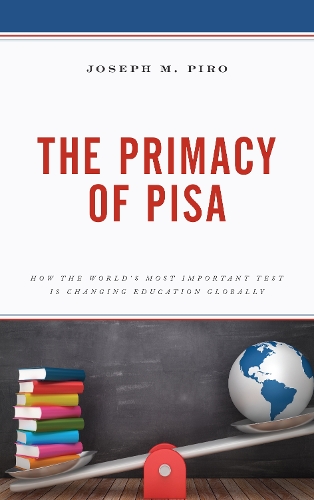
The Primacy of PISA: How the Worlds Most Important Test Is Changing Education Globally
(Hardback)
Publishing Details
The Primacy of PISA: How the Worlds Most Important Test Is Changing Education Globally
By (Author) Joseph M. Piro
Bloomsbury Publishing PLC
Lexington Books
21st August 2019
United States
Classifications
Professional and Scholarly
Non Fiction
Education / Educational sciences / Pedagogy
Social research and statistics
379.158
Physical Properties
Hardback
204
Width 161mm, Height 229mm, Spine 21mm
485g
Description
Every three years the world awaits the results of the Programme for International Student Assessment or PISA, the rankings of school systems overseen by the Organisation for Economic Co-operation and Development (OECD). Nations around the world look eagerly and apprehensively to see where their students rank on these tests of competence in, mainly, science, math and reading. This book provides a window into PISA and its power. What exactly is PISA How are its tests developed Who takes the test What countries tend to outperform and which underperform What do countries learn from PISA Why is PISA both revered and feared And, most importantly, does PISA improve education globally The first PISA, in 2000, included 32 countries. In 2018, nearly eighty nations took part in PISA. That number is expected to double by 2030. This may mean that students in over 80% of the worlds countries will take the PISA exams. This scenario has made PISA more important than ever. This book probes topics and themes related to the worlds most important exam and why many view a high PISA rankingrightly or wronglyas global educations seal of approval. Because of this, PISA has been called a disruptor, a test which can trigger major reform in school systems around the world. But is it the PISA rankings that are the real disruptor or the decisions countries make because of their rankings These decisions often involve systemic changes in teaching and learning which can substantially alter how a country measures and prioritizes its education system.
Reviews
Joseph M. Piro provides an informative account of the most important global education testing regime of our times: The Programme for International Student Assessment (PISA). His book is a must-read for anyone interested in education policy and politics as it copes brilliantly with keeping the balance between being a compendium and a critique at the same time. It explores why we strive for comparisons, how the OECD has become the epicenter of education, what PISA means for different countries including the US and many more fascinating issues. Take a look inside! -- Kerstin Martens, Professor for International Relations, University of Bremen, Germany
Author Bio
Joseph M. Piro is professor at Long Island University in the Department of Teaching & Learning and codirector of the doctoral program in interdisciplinary educational studies.
